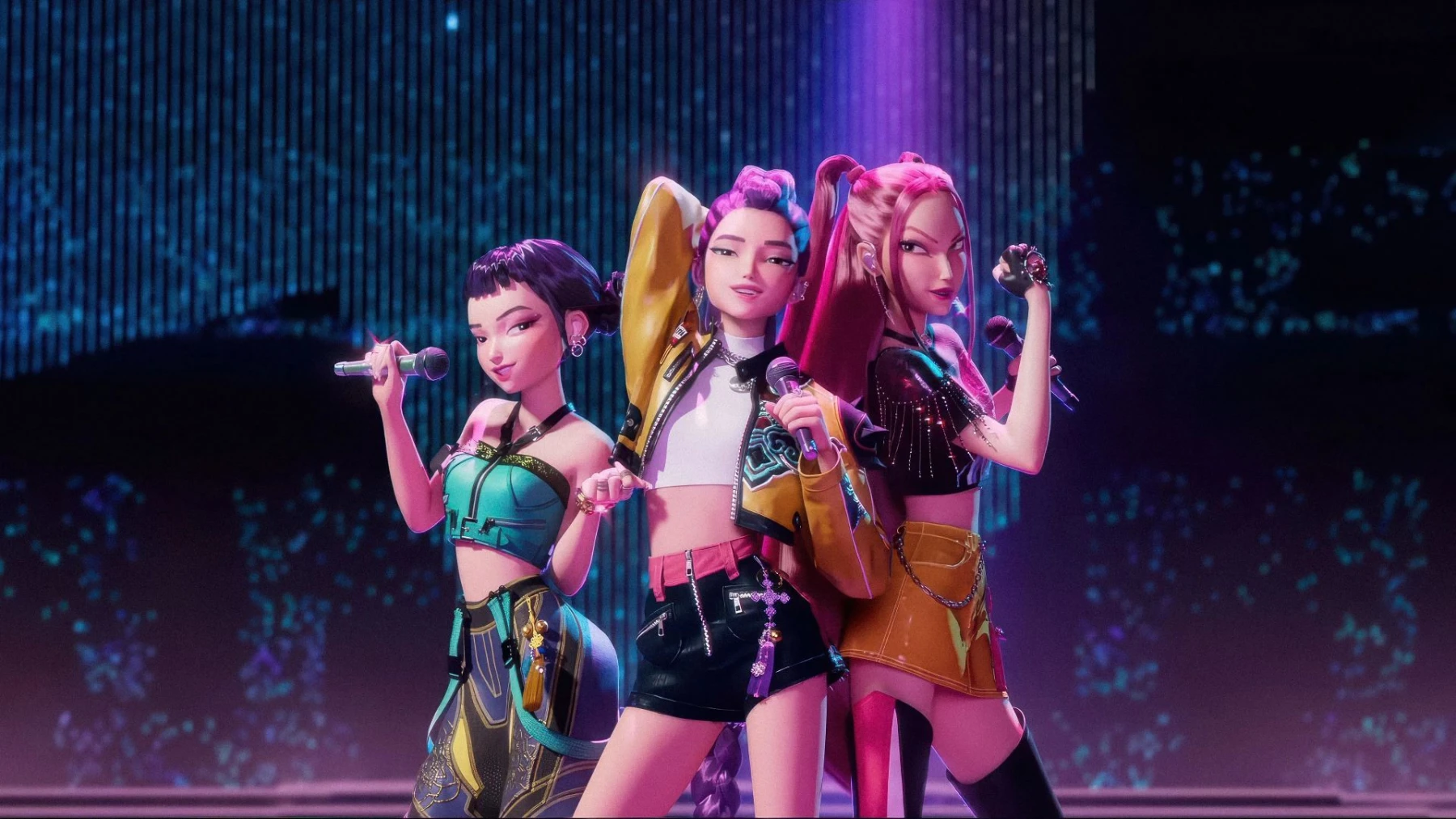Far from remaining confined to its sphere of pure leisure, video games, as the first cultural industry in the world, have finished shaping the way of thinking and perceiving the world of an entire generation.
Since Covid, video games have become the leading cultural industry in the world in terms of turnover, ahead of cinema and music combined. But this is not a simple economic fact. This predominance of gaming spills over. Understand that a whole generation uses video game codes to shape their way of thinking and perceiving the world. This is the research axis ofEsteban Ginerdoctor in Information and Communication Sciences and coordinating teacher for the third year of the Game Art bachelor’s degree at the École des Gobelins. Through interviews with players in the games industry and students, he explores the gamification of cultural industries and beyond.
You mention the notion of “video game cultural overflow”. Can you explain this concept to us in more detail?
Esteban Giner: I consider the overflow of video games as the use of sociocultural codes and references to video games beyond playful practices or its communities. Gaming now influences other cultural sectors such as cinema or comics. The typical example is the change that Hollywood has experienced from 2023, when blockbusters went from adaptations of comic book licenses to adaptations of video games like Mario, Sonic, Grand Tourism or Minecraft. Of course, there have been adaptations in the past, but what I observe is the importance that game licenses have taken in the film industry. We can also cite Korean manga and webcomics which massively exploit playful mechanics to construct a narrative. This is the case, for example, of the isekai subgenre, which brings together stories where a character generally finds himself projected into a fantasy universe governed by the codes of role-playing games, with his character sheet and digital interfaces completely integrated into the world.
Does this mean that video games have ended up dominating our cultural environment?
EG : We must first take into account the question of the public. We have experienced something like fifty years of video games but also of cultural works which have borrowed these codes for commercial reasons. All this laid the foundations of a common imagination and the sharing of cultural references that are now widely accepted. In the movie Minecraftfor example, we see characters throw a bucket of water on the ground to break a fall. This typical game mechanic doesn’t really make sense, but it is used in the cinema because it is understood by the public. “Megalovania”, a song from the game Undertaleis regularly used on networks to signify a particularly complicated confrontation. The manga also appropriates the logic of video games to use them in the stories: experience gain, progression systems, visual interfaces… So many elements which now seem natural and coherent, where previously they would have seemed strange or out of place.
Gaming vocabulary, like farming, try hard, grindingseems to have invaded the conversations of generations Z and Alpha. Is this also a form of overflow?
EG : Yes. The culture of video games but also that of performance or capitalism end up overlapping to form a reading grid to which individuals refer to give meaning to their daily lives. It is through this framework that the youngest see the world. They need it, it reassures them. Most of the people I interview during my work as a teacher or researcher share the same observation: there is a general pessimism hovering over our time which causes them to withdraw into themselves. “In such a complex world, the only thing I can control is ultimately my own trajectory. » As a result, they approach a lot of things in a very pragmatic way, like salaried employment, and that’s where gamification comes in. Gamifying isn’t just about sticking game mechanics to processes. It’s about rationalizing interactions and simplifying complex realities. We replace fuzzy social signals or implicit contexts with binary indicators. Since it is not possible to overturn the framework, we might as well play with its limits.
How does this integration of game mechanics translate into practice?
EG : This is a hypothesis that I have not yet verified, but I have the impression that the youngest people entering the job market are not trying, like the previous generation, to find meaning in their job. Rather, they arrive with what we could call a “meta », a term that comes from strategy video games. Basically, the metagameit is the game within the game, a sort of perfect understanding of the system in which the players are immersed, and which allows them to transcend the rules established by the creators. In the context that interests us, these young people therefore arrive with a meta, that is to say a kind of pre-knowledge of the rules of the system, with which they want to play. This translates for example into this idea according to which we work our hours and no more, that we avoid defining ourselves in relation to our work, that we don’t really socialize in the workplace but rather outside, after work hours. The meta is a relationship with things which allows us to serve a very personal objective of success or even an exit from wage exploitation. This concept can be compared to that of the ” rat race »this “rat race” – the metro-work-sleep routine – which has existed for several decades but which has come back into fashion recently. Rather than wanting to change or repair the capitalist world they are in, this generation accepts the rules and tries to play by them as best as possible. It is in fact a playful attitude of appropriation of the system which seems to me to be becoming more widespread.
Developing a meta is a survival strategy, actually?
EG : Many have moved beyond this idea of passion work that would allow them to express their true identity. This aesthetic of “doing what you love” has perhaps been pushed too far by millennials, who have forgotten the balance of power in the process. This meta attitude, which brings awareness to everything and which could almost be described as cynical, does not, however, reflect a complete disengagement, but rather a form of strategic individualism. In my interviews, very few young people said they regularly stay informed about the news, not out of disinterest, but because they find it too anxiety-provoking. Instead, they invest in their own trajectory, their content, their personal aesthetic. These are incremental logics, often linked to the dynamics of cloutreputation, views on networks: a quantified valuation of the self, perfectly in line with the mechanics of gamification.
Is influence on social networks also a form of gambling?
EG : Yes, we can perfectly observe this meta on social networks and particularly in the world of content creation, which has well understood how the rules of platforms and algorithmic logic work. If we look at the content that works, it is often short videos, very well edited and formalized for Instagram or TikTok, and which show processes that are sufficiently visual to have the longest viewing time. Regardless of the message conveyed by this content, we are especially attracted by the form. In the 2010s, we sometimes saw very experimental videos emerge. I am thinking of those of the videographer Benjamin Bennett, who in his series Sitting and smiling filmed himself just motionless, sitting cross-legged and smiling, for long hours, or those of the musician Jon Sudano, who had fun slapping the lyrics of the song “All Star” by Smash Mouth on all the pop-rock tunes he could play. These formats, which wanted to hack our attention, allowed MrBeast to make himself known in 2017 when he had up to 100,000 viewers in front of the camera. Now that we know what these videos can produce, we are working to take advantage of them, to exploit them. Now, TikTok lives are full of experiences like these: a man blowing up a balloon until it explodes or another trying to peel an egg without bursting it. It is no longer the content that counts, but the rules of the game, namely: how long will I retain the attention of viewers. It is no longer even the object of the performance but the framework in which it takes place that is valued. We enter into a logic where we favor the establishment of rules to the detriment of meaning or creation.
Between this integration of the meta and the enhancement of the rules of the game, the new generation does not seem to want to make a revolution or change anything…
EG : There is perhaps a desire to play with the limits, to push them, to make them a little blurry. But breaking the mold, destroying it, that, actually, I’m less sure. To be frank, I’m not sure any generation once wanted this. It’s not that there isn’t criticism, or even radical personalities… But I don’t believe that there is, for many, a desire for radical subversion. And this observation applies, I believe, to all generations. Many believe they live in what is called late stage capitalismthis end-of-cycle capitalism, which ends up turning on itself and where companies – and more broadly economic actors – exploit the flaws in the system instead of truly innovating.
Rather than a shift towards a proletarian revolution as Marx imagined, we find ourselves in a form of sclerosis where everyone seeks to manipulate the rules of the game to obtain maximum benefit. And what becomes problematic for companies is that the younger generations really don’t care if the system breaks down or not. There is a subreddit that I love, Malicious Compliancewhich tells stories of employees who obey absurd orders to the letter, and thus show the absurdity of the system. For example, an employee who arrives early every day leaves later, without asking for compensation. Until the day when a new zealous manager requires him to arrive sharply at 9 o’clock. So he obeys – and the system collapses, because everything was based on these thirty minutes of unspoken free work. This generation therefore plays according to the rules of the game, but undoubtedly expects them to collapse at any moment… until the next ones.



